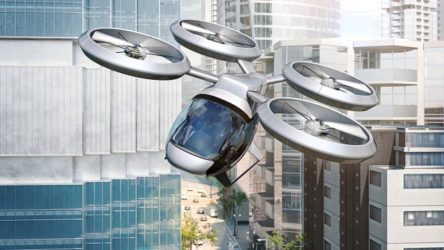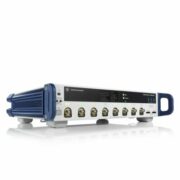Mobility options in cities are becoming more and more diverse. People go by foot, bike, or e-bike, take buses, trams, or trains, drive their own cars, and in the future will even travel in driverless cars.
There are also new options for flight: in conurbations, autonomous flying taxis or drones could transport people or time-critical goods and medications. All these applications require powerful sensors and control systems that save as much energy as possible. This is precisely where the publicly funded OCEAN12* project comes in – a pan-European collaboration of 27 partners from the fields of semiconductor technology, electronics, aerospace technology, and automotive technology. Bosch heads up the German consortium, which consists of 14 organizations. The project partners will be working together up until the end of 2021 to develop various especially energy-efficient components that can collect and process data from the surroundings of vehicles and aircraft. These include surround sensors such as cameras and lidar or radar sensors, as well as microprocessors for processing data. The electronics translate the collected data into commands for downstream components – for example, braking or steering a car or controlling the propulsion of a flying taxi.










